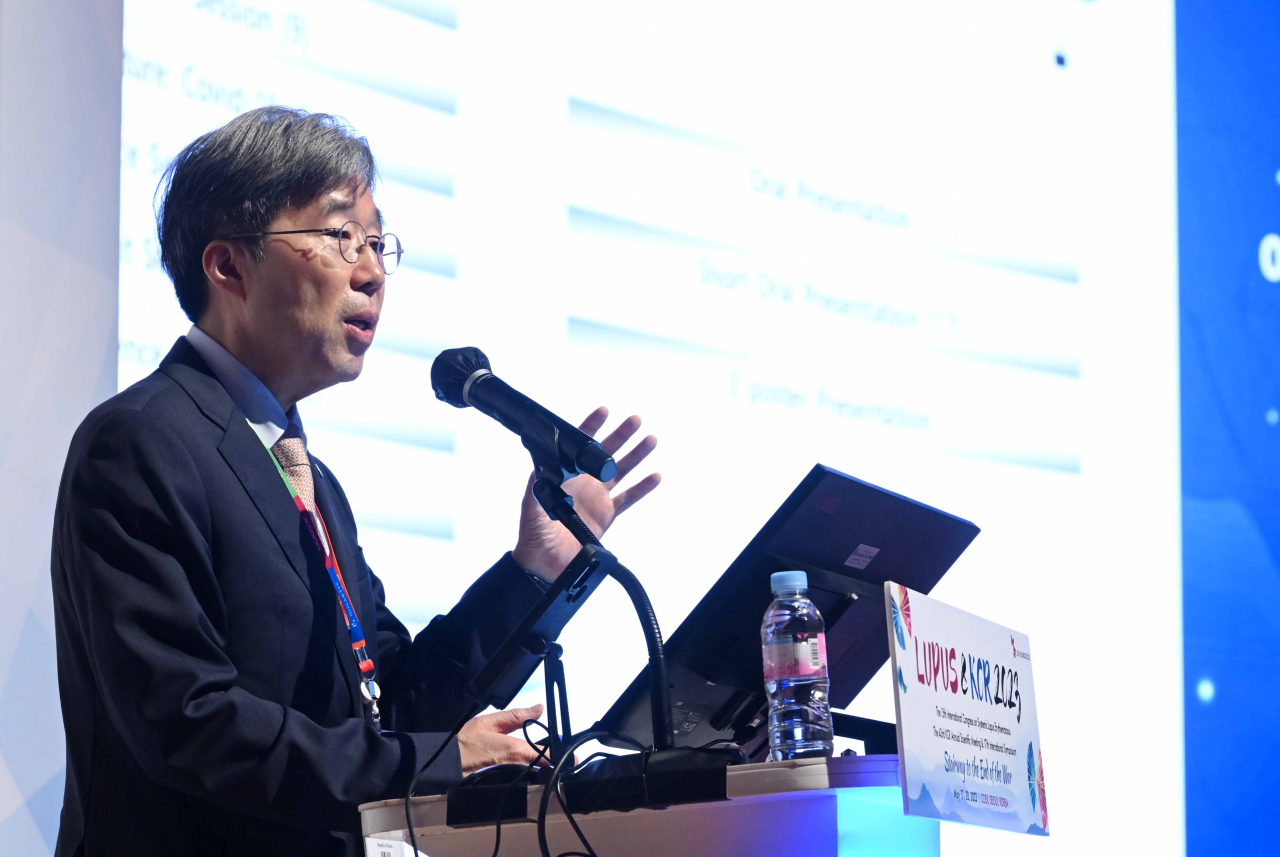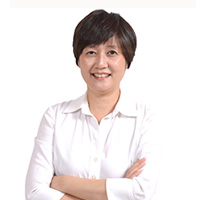[Lupus & KCR 2023] Social determinants play large part in access to health care
By Kim Hoo-ranPublished : May 19, 2023 - 09:47

Speaking at Thursday's session on “Global Challenges,” Dr. Bae Sang-cheol of Hanyang University pointed out that social determinants account for more than 50 percent of population health. One’s genetic makeup and biology as well as personal behaviors contribute only around 25 percent. Medical care, meanwhile, accounts for about 20 percent.
In his presentation titled "Access to Health Care," Bae noted that in lower socioeconomic status areas, lupus management is less effective due to social determinants. Patients lack access to clinical lupus experts and have difficulty obtaining medications due to a lack of coverage or to out-of-pocket costs.
Bae argued that the economic status and health care system of each country, as well as the health disparities within each country, should be considered in order to improve access to health care for Systemic Lupus Erythematosus patients.
It is also important to address the gap between what is known about effective management of SLE and what is actually delivered to patients, he said.
In the least developed and emerging and developing countries, improving professional and public awareness of SLE, setting diagnostic criteria that can be standardized with limited resources, performing minimum and cheaper lab tests, using cheaper but reliable medications and the implementing patient self-management education can contribute to improving access and quality of health care, Bae explained.
Other measures might include training and supporting committed individuals to educate students, physicians and health professionals, training more specialists to diagnose and conduct research and employing telemedicine.
Bae's presentation also addressed opportunities for improving access and quality in advanced and developed nations, which include ending health disparities.
Bae cited a 2002 study which concluded that there are marked age-, sex- and race-specific disparities in SLE death rates. For instance, death rates increased by about 70 percent during the study period among Black women aged 45-64.
That finding is also echoed in a lecture by Dr. Matthew Liang of Harvard University on Friday titled "Ending Health Disparities in SLE."
Liang notes that the disparity faced by Africans Americans in SLE mortality is a case study in health outcome inequality -- a result of structural racism. He argues that the end of racial health disparities in SLE in the US will come when there is health equality for all.
-
Articles by Kim Hoo-ran



















![[Today’s K-pop] Treasure to publish magazine for debut anniversary](http://res.heraldm.com/phpwas/restmb_idxmake.php?idx=642&simg=/content/image/2024/07/26/20240726050551_0.jpg&u=)